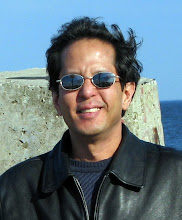Part 5 of this video series focuses on the post-treatment experiences of patients who underwent the ENDABUSE Procedure with ibogaine. They discuss a window of opportunity from weeks to months where they had no addictive cravings during which they could make needed changes in their lives. Social workers who did pioneering psychotherapy with these patients also reveal their
findings.
In this segment NYC social worker Barbara Judd notes that, using classical psychotherapy, patients would take 2-3 years to achieve the insights and personal epiphanies that a single dose of ibogaine accomplished in 30-48 hours. These patients were not only able to re-experience critical formulative scenes from their past, but they could do so objectively at a distance, without the accompanying emotional trauma, a remarkable achievement unto itself.
Ibogaine patients were uniformly astonished by their lack of craving post treatment. One woman recounts being in the same room with other addicts who were using, shooting up, and snorting and realizing the comic-tragedy of how they fought over a little bit of powder, how something so insignificant could be so important. She gave her heroin away that day and, within 6 months, went back to school to get her life back on track.
Another young man recalls how, after his ibogaine treatment, he lit up a cigarette and was repulsed by the taste, choking on the smoke. Quitting smoking was the last thing on his mind when he undertook the procedure.
All of these patients eventually went back to using drugs. For some it was within weeks, for others, months. As they re-entered their lives and the effect of ibogaine gradually wore off, the daily pressures and their own insecurities re-asserted themselves and they eventually succumbed.
Social worker Rommell Washington explains that relapse is a familiar part of the addiction cycle. Most of these patients were later re-treated with ibogaine. Another woman explains that, with each treatment, her ability to cope and fend off her personal demons grew stronger. It was only a matter of time until she would be psychologically strong enough to live permanently without drugs.
This was another important lesson for Howard Lotsof and NDA International. A regimen of reinforcing psychotherapy, support groups, and retreatment emerged as the correct long term treatment model. What Howard originally believed was a single treatment modality was proving to be a single important tool in the established system of addiction treatment. This new model meant more economic opportunity for NDA: a series of ibogaine treatments over a period of years with accompanying support systems.
The cup was half full, not half empty. There was more work yet to do.
Rainbow's Edge - Part 1
-
After dad announced in no uncertain terms he couldn't cough up the large
for NYU fall semester in 1974, I met with undergrad film chair Haig
Manoogian and ...






No comments:
Post a Comment